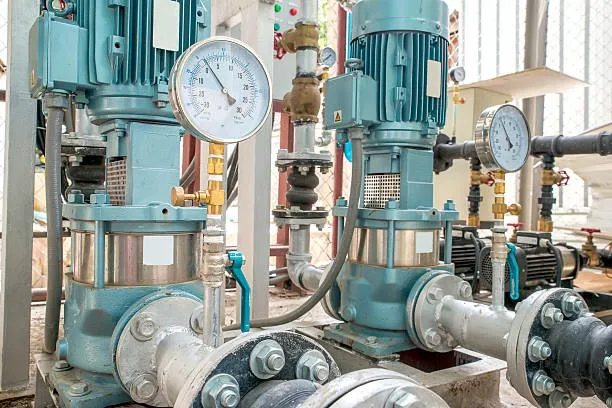
Boiler Tune-Up in York City, PA
A professional boiler tune-up keeps your home safe, efficient, and reliably warm through York City winters. With cold snaps, older masonry rowhouses, and many hydronic heating systems in the area, routine tune-ups are one of the most effective ways to prevent mid-winter breakdowns, improve burning efficiency, and extend the life of your boiler.
Why a boiler tune-up matters in York City, PA
York City experiences long, sometimes severe heating seasons. Older homes and compact city footprints mean many systems work hard for extended periods. A tune-up:
- Restores safe combustion to reduce risk of carbon monoxide and unsafe operation.
- Improves fuel efficiency so your system uses less gas or oil during peak heating months.
- Identifies worn parts and minor leaks before they cause a costly failure.
- Keeps boilers compliant with manufacturers warranty and many insurance requirements.
What a professional boiler tune-up includes (step-by-step tasks)
A complete residential boiler tune-up follows a consistent checklist so nothing is missed. Typical tasks performed by a certified technician:
Initial inspection and system history
- Review model, age, service history, and any recent issues.
- Note fuel type (natural gas, propane, oil) and system type (hot water, steam).
Safety checks
- Inspect carbon monoxide alarms and flue/venting condition.
- Verify combustion air pathways are clear.
- Test pressure relief valve and system pressure/pressure gauge.
- Check low-water cutoff on steam and hot water boilers.
Burner and combustion inspection
- Remove and clean burners and pilot assembly where applicable.
- Inspect and clean nozzle and electrodes on oil systems.
- Visually inspect flame pattern and burner components.
Adjust fuel/air mix and ignition
- Measure combustion with a combustion analyzer (O2, CO2, CO, stack temperature).
- Adjust fuel/air ratio for clean, efficient combustion and minimal CO production.
- Verify proper ignition sequence and flame sensing.
Heat exchanger, flue, and chimney check
- Inspect heat exchanger for cracks, corrosion, or soot buildup.
- Check flue piping, chimney condition, and draft to ensure safe venting.
Controls, safety device testing, and electrical checks
- Test thermostat operation, cycling, and setpoints.
- Test high-limit controls, pressure/temperature sensors, and safeties.
- Inspect wiring, terminals, and circulation pump electrical connections.
Hydronic system checks (for hot water boilers)
- Inspect circulator pump performance and bearings.
- Check expansion tank pressure and bladder condition.
- Bleed air from radiators and zone valves as needed.
- Verify zone valve and actuator operation.
System cleaning and minor adjustments
- Remove soot and debris from combustion chamber and accessible passages.
- Lubricate motors and moving parts where applicable.
- Tighten accessible gas or fuel line fittings and electrical connections.
Performance measurement and reporting
- Record combustion analyzer results and compare to optimal specifications.
- Provide a summary of findings, any recommended repairs, and predicted impacts.
What technicians measure and why it matters
- Combustion efficiency (stack temperature, O2, CO2, CO): Ensures complete combustion and helps reduce fuel use and carbon monoxide risk.
- System pressure and water level: Prevents leaks, poor heat distribution, and pump damage.
- Electrical and ignition parameters: Avoids no-heat situations caused by failed controls or weak ignition.
Expected performance improvements
After a thorough tune-up York City homeowners commonly see:
- More consistent heat and faster response from zones and radiators.
- Reduced fuel consumption thanks to cleaner combustion and optimized controls.
- Lower risk of mid-season failures due to worn components identified and corrected.
- Fewer cycling problems and improved comfort balance across rooms.
While exact fuel savings vary with system age and condition, restoring proper combustion and airflow typically delivers noticeable improvements in efficiency and reliability.
Recommended frequency and timing
- Annual tune-up: Recommended for nearly all residential boilers, ideally performed in early fall before the heating season begins.
- Older systems or boilers with recurring issues: Consider twice-yearly inspections.
- Homes that sit vacant for long periods or experience heavy seasonal use: follow the same annual schedule, and check before heavy-use months.
Scheduling the tune-up in late September or October in York City ensures your boiler is ready for the first cold snap and gives time to address any parts or repairs before peak demand.
Typical service time
- Standard residential boiler tune-up: approximately 60 to 90 minutes for a single-family home boiler with no major repairs required.
- Larger systems, multi-zone setups, or systems requiring cleaning of inaccessible components: 2 hours or more.
- If repairs or parts replacement are recommended, additional service time will be needed.
How tune-ups fit into a maintenance plan
A tune-up should be part of a consistent maintenance plan that protects your heating investment and reduces long-term costs:
- Annual plan: One full tune-up each year plus priority diagnostic visits during the heating season.
- Enhanced plan: Two visits per year (pre-season tune-up and mid-season check) for older or high-use systems.
- Benefits of a maintenance plan:
- Reduced likelihood of emergency breakdowns during extreme cold.
- Budget-friendly scheduling and predictable servicing.
- Potential eligibility to maintain warranties and lower insurance risk.
Common problems a tune-up prevents
- Flame instability and soot buildup that reduce heat output.
- Ignition failures or intermittent burners that lead to loss of heat.
- Corrosion or cracked heat exchangers that can cause leaks or safety hazards.
- Circulator pump failures and trapped air that cause cold zones.
- Unsafe venting or elevated carbon monoxide risk.


Enjoy flexible financing options that make upgrading or repairing your HVAC system easy and budget-friendly.










